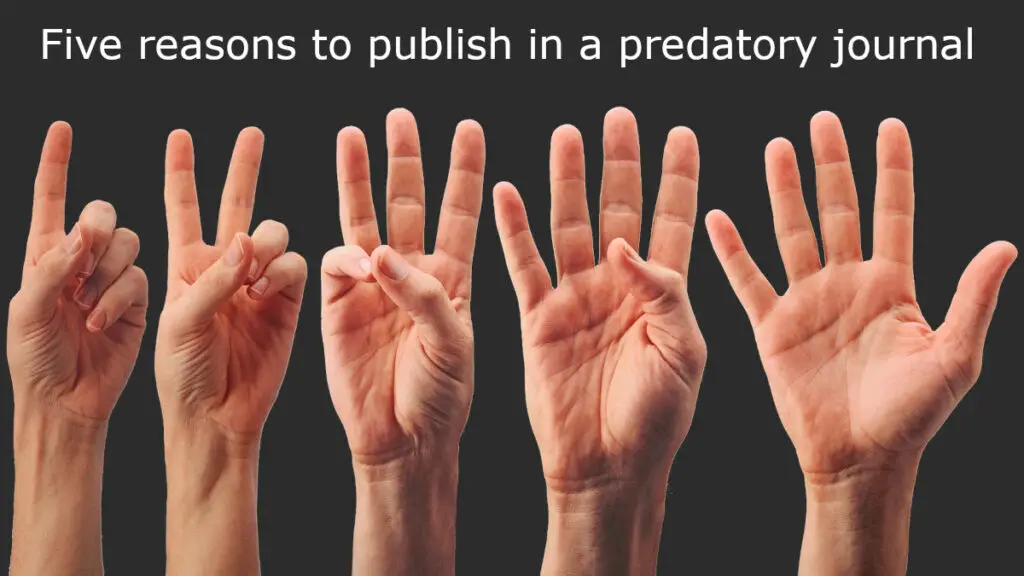We have written before, asking why some scholars appear to be willing to publish in predatory journals?
Our previous article, and it is a common thread in our writing, draws heavily on the scientific literature as, being academics, we feel that we should support statements that we make, and give readers some pointers to further reading should they wish to take that opportunity.
We also provide a lot of evidence to support what we say. Whether that is screen shots, pointers to web sites etc., we feel that it is important to have an evidence base that we can draw upon. Indeed, there is much more evidence that we collect that we do not present in the articles.
But, we are not sure that we should always fall back on the scientific literature, or have a heavily evidenced based article, but rather just give our views.
With this in mind, we thought we would just a few of our own views as to why scholars are willing to publish in predatory journals. These views are obviously drawn from the scientific literature, but we want to do this from ‘memory‘ which we feel gives the most important points, at least from our point of view.
The one aspect we will not dwell on is the fact that scholars do not know that a journal is predatory. That is a problem in itself, but is not the focus of this article.
So, here are our top five reasons why we believe that people publish in predatory journals.
- It adds to your CV, and in short order. It is not unknown, in fact it is quite common, to submit a paper to a predatory journal and have it accepted a few days later. For somebody desperate for publications, this is a quick answer to an immediate problem
- It can enhance your CV by adding publications to bulk it out. You may not need many predatory papers, just a few a year, to keep your CV “ticking over”. Many scholars would benefit by mixing good quality papers in with their predatory papers so that it is not so obvious when somebody looks at your CV as they will see some journal titles that they recognize and recognize as being of good quality.
The danger, if you focus too much on predatory journals, especially if you keep publishing in the same one, is that people who see your CV will start to question the quality of the journals and it will relatively easy to sanity check those journals. - We suspect that many scholars know that their CV would not stand up to close scrutiny but they believe that their CV is unlikely to be subject to that close scrutiny. If your Key Performance Indicators (KPIs) require you to publish, either to retain your position, get a bonus or get promotion, why not publish where you can and hope that nobody looks too closely?
There is also the consideration that many people who look at your CV will not be experts in your discipline so they will not be familiar with the journals that they would expect to see and it would be take a lot of work to go through your CV, looking at each individual paper. - Peer pressure can never be ignored. If your colleagues are doing better than you then there is pressure on you to up your game. If that pressure is coming in the form of publications, it could be tempting to go down the route of predatory publishing just to try and keep up with your peers. Of course, your peers may themselves be publishing in predatory journals, which adds even more pressure on you as they will, no doubt, be publishing a lot of papers.
- The vanity side of publishing may be a factor. Perhaps you just want that boost to your ego when you get a paper published and publishing in predatory journals may be one way to do that. You may not fully understand (or care) what predatory publishing actually is and you view any paper that says it carries out peer review as a good paper.
We suspect that there are many people that look through the scientific publishing industry through rose tinted glasses and just assume that anybody who is willing to publish your paper must be a “good guy”.
So, these are our five reasons why we believe some scholars willingly publish in predatory journals. There are many more reasons (for example, being asked to be an editor and thinking this is a good thing) but these are our top five.
We leave you with this message.
If you believe that a journal is predatory, do not submit to it. The world is not short of journals, so just look for another one.


